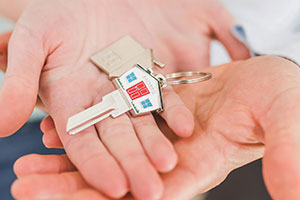
Bankruptcy will stay on your record for 10 years after filing, but that doesn’t mean that life is over for you. The purpose of bankruptcy is to allow you to have a fresh start, so by making some changes in your lifestyle and taking some prudent financial steps, you can get back on the road to recovery.
The skilled and seasoned Ohio bankruptcy attorneys at Fesenmyer Law Offices, LLC understand that financial problems can happen to even the most well-intentioned people. Here are suggestions as to what you can do to avoid falling back into a financial hole after bankruptcy and stay on the path to a bright financial future.
Keep All Paperwork From Your Case
After bankruptcy, make sure you keep copies of your bankruptcy petition, notice of filing and discharge. Some lenders want a copy of the bankruptcy papers when considering you for new credit and mortgage loans so they can see what you have discharged in old debt. It’s also important to have the paperwork on hand in case anyone attempts to collect on that old debt in the future.
Make a Budget
Drifting back to old spending habits is likely to get you into trouble again, so take the time to create and stick to a budget that will keep you on financial track. A budget that views your income and expenses will help you know where your money should and should not be going. Start by budgeting for your major regular expenses that maintain your basic costs of living each month. Consider setting up automatic payments or a separate account to take care of regularly occurring expenses, such as mortgage payments, property taxes, or insurance, so they are taken care of immediately. Look for areas where you can save money and cut unnecessary spending.
Make sure you pay bills on time, and don’t buy anything unless you can pay for it by the end of the month.
Open Checking and Savings Accounts
Have a goal to save some money, even if it is a small amount to begin with. Open checking and savings accounts in a local bank or credit union that doesn’t charge fees. Saving is a way to help you discipline yourself when it comes to spending. Saving money for something you want helps you avoid impulse buying, which is one of the main reasons people get in trouble in the first place.
In addition, you need to have some money put aside for unforeseen emergencies such as a car repair. By saving money for future needs, you help avoid new debt when emergencies arise.
Rebuild Your Credit
Re-establish good credit by starting with a secured credit card from your bank. You do this by depositing money into an account as security. Your credit limit will equal the amount in the account. This allows you to rebuild your credit by paying on time, and it will help build your credit since the bank reports your payments to the credit bureaus.
After using the secured card successfully, you can apply for a gasoline or a department store charge card. By paying off the entire balance each month, you will build up your credit to the point where you eventually can get a regular charge card. Just make sure not to get trapped once more into charging anything that you cannot pay off completely.
Check Your Credit Reports Regularly
It’s important to see what your creditors are saying about you, so get credit reports from each of the three major credit reporting agencies for free once a year. Make sure there are no errors and that all of the debt discharged in your bankruptcy is being reported to the credit bureaus with a zero balance so it doesn’t count against you as outstanding debt, Be aware that it may take several billing periods for creditors to rectify their accounts, and some stop reporting to the credit bureaus altogether after a bankruptcy, so keep on top of your situation.
Consider Buying or Keeping a Home
Making mortgage payments on time affords stability and builds good credit. If you manage to keep your house through bankruptcy, make sure you reaffirm the loan while your bankruptcy case is active, so the lender will report future payments to the credit bureaus.
If you get to the point where you have established enough credit to consider buying a home, consider that the National Association of Realtors (NAR) believes that 24 months after your bankruptcy has been discharged is the ideal time to apply for a mortgage. By then you may be able to secure a loan at a better interest rate than right after bankruptcy, and that means lower monthly payments.
Adjust Your Lifestyle
If your free-spending lifestyle got you into trouble in the first place, look to where you can make changes. You may have to change where you live and how often you spend on frills such as fancy cars, vacations, and restaurants. Live on cash whenever possible, and build that fund for unexpected emergencies.
Contact Us and Get Help
The seasoned and compassionate Ohio debt relief attorneys at Fesenmyer Law Offices, LLC, understand that recovering from bankruptcy is not an easy process. We offer a free consultation to help you get started by evaluating your entire financial situation — your income, your debts and your goal. We will make sure you are aware of all your options and walk you through the steps to find the path to a brighter future that makes sense in your individual case.
Let us help you deal with your debt. Call our attorneys at 614-228-4435 (Columbus), 937-222-7472 (Dayton), or 877-654-5297 (Cincinnati) today and ask for your free initial consultation.


